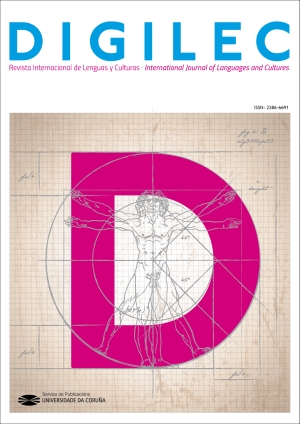Task-based approach. Analysis of tasks in Spanish as a foreign language textbooks
Main Article Content
Abstract
Aside from the learner and the instructor, the textbook is indispensable because it can influence the effectiveness of foreign language teaching. Nowadays, there are many choices of textbooks, and departments must choose those that align with their teaching goals and methodologies. Therefore, language programmes would benefit from studies guiding them effectively. This study aims to analyse the representation of the task-based approach in textbooks used in university-level Spanish as a foreign language according to the criteria of a task suggested by Ellis (2009) and the task-component theory proposed by Nunan (1989). The results of the qualitative analysis indicated that more than half of the tasks in the textbooks met the requirements of a task. Regarding components, texts with dialogues were slightly more dominant. At the same time, a preference was noted for group and communication-related tasks. Culture, problem-solving and audiovisual tasks were less represented. The study demonstrated the use of task criteria and components theory to assess the representation of task-based learning activities in textbooks.
Keywords:
Downloads
Article Details
References
Benson, S. (2016). Task-based language teaching: An empirical study of task transfer. Language Teaching Research, 20(3). http://dx.doi.org/10.1177/1362168815569829 DOI: https://doi.org/10.1177/1362168815569829
Brindley, G. (2009). Chapter 19. Task-centred language assessment in language learning (pp. 435–454). John Benjamin. https://doi.org/10.1075/tblt.1.23tas DOI: https://doi.org/10.1075/tblt.1.23tas
Bryfonski, L. (2020). Current Trends and New Developments in Task-Based Language Teaching. ELT Journal, 74(4), 492–511. https://doi.org/10.1093/elt/ccaa043 DOI: https://doi.org/10.1093/elt/ccaa043
Calvert, M., & Sheen, Y. (2014). Task-based language learning and teaching: An action-research study. Language Teaching Research, 19(2), 226–244. https://doi.org/10.1177/1362168814547037 DOI: https://doi.org/10.1177/1362168814547037
Ellis, R. (2003). Task-based language learning and teaching. Oxford University Press.
Ellis, R. (2005). Principles of instructed language learning. System, 33(2), 209 -224. https://doi.org/10.1016/j.system.2004.12.006 DOI: https://doi.org/10.1016/j.system.2004.12.006
Ellis, R. (2009). Task-based language teaching: Sorting out the misunderstandings: Task-based language teaching. International Journal of Applied Linguistics, 19(3), 221–246. https://doi.org/10.1111/j.1473-4192.2009.00231.x DOI: https://doi.org/10.1111/j.1473-4192.2009.00231.x
Elmiana, D.S. (2018). A Critical Analysis of Tasks in Senior High School EFL Textbooks in Indonesia. Journal of Asia TEFL, 15(2): 462–70. http://dx.doi.org/10.18823/asiatefl.2018.15.2.14.462 DOI: https://doi.org/10.18823/asiatefl.2018.15.2.14.462
Estaire, S. (2005). La enseñanza de lenguas mediante tareas: principios y planificación de unidades didácticas. MEELE, Universidad Antonio de Nebrija. https://marcoele.com/descargas/12/estaire-tareas.pdf
Freeman, D. L. (2001). Teaching grammar. In M. Celce Murcia (Ed.), Teaching English as a Second or foreign language (pp. 251–66). Thomson /Heinle.
Garinger, D. (2002). Textbook selection for the ESL classroom. Center for Applied Linguistics Digest. https://www.cal.org/wp-content/uploads/2022/05/TextbookSelectionfortheESLClassroom.pdf
Gutiérrez, C. T., & Alfredo, N. F. (2012). Latitud 0° - Manual de español intercultural. SGEL.
Jeon, I.-J. (2005). An Analysis of Task-based Materials and Performance: Focused on Korean High School English Textbooks. English Teaching, 60(2), 87-109.
Karim, S., & Haq, N. (2014). Culture of language learning: A comparative study of English language textbooks used in Pakistan. Dil ve Dilbilimi Çalışmaları Dergisi, 10(2), 157–168.
https://www.jlls.org/index.php/jlls/article/view/208/201
Littlewood, W. (2007). Communicative and task-based language teaching in East Asian classrooms. Language Teaching Journal, 40(3), 243-249 http://dx.doi.org/10.1017/S0261444807004363 DOI: https://doi.org/10.1017/S0261444807004363
Long, M., & G. Crookes (1993). Units of Analysis in Syllabus Design: The Case for Task. In G. Crookes, & S. Gass (Eds.), Tasks in Language Learning (pp. 9-54). Multilingual Matters.
Marín, F & Morales, R. (2014). Vente 1. Libro del alumno. Edelsa.
Marín, F., Morales, R. & Ibañez, A. (2014). Vente 2. Libro del alumno. Edelsa.
Muller, T. (2005). Adding Tasks to Textbooks for Beginner Learners. In C. Edwards & J. Willis (Eds.), Teachers Exploring Tasks in English Language Teaching (pp.69–77). Palgrave Macmillan. DOI: https://doi.org/10.1057/9780230522961_7
Nassaji, H., & Fotos, S. (2011). Teaching grammar in second language classrooms: Integrating form‐focused instruction in communicative context. ESL & Applied Linguistics Professional Series. Routledge. DOI: https://doi.org/10.4324/9780203850961
Nunan, D. (1999). Second language teaching and learning. Heinle/Thomson.
Nunan, D. (1989). Designing tasks for the communicative classroom. Cambridge University Press.
Pountain, C. (2007). Practising Spanish Grammar (2nd ed.). McGraw-Hill.
Prabhu, N. S. (1987). Second language pedagogy: A perspective. Oxford University Press.
Richards, J. C., & Rodgers, T. S. (2002). Approaches and methods in language teaching. Cambridge University Press. DOI: https://doi.org/10.1017/CBO9780511667305
Sánchez, A. (2004). The task-based approach in language teaching. International Journal of English Studies, 4(1), 39–71. https://revistas.um.es/ijes/article/view/48051
Skehan, P. (1996). A framework for the implementation of task‐based instruction. Applied Linguistics, 17, 38–62. https://doi.org/10.1093/applin/17.1.38 DOI: https://doi.org/10.1093/applin/17.1.38
Swan, M. (2005). Legislation by hypothesis: The case of task‐based instruction. Applied Linguistics, 26(3), 376–401. https://doi.org/10.1093/applin/ami013 DOI: https://doi.org/10.1093/applin/ami013
Tomlinson, Brian. (2014). Developing Materials for Language Teaching (2nd ed.). Bloomsbury Academic.
Willis, J. (1996). A framework for task-based learning. Longman.


